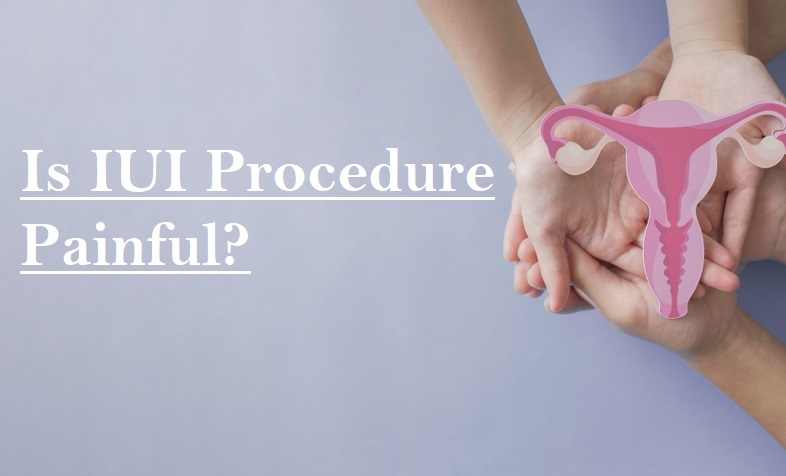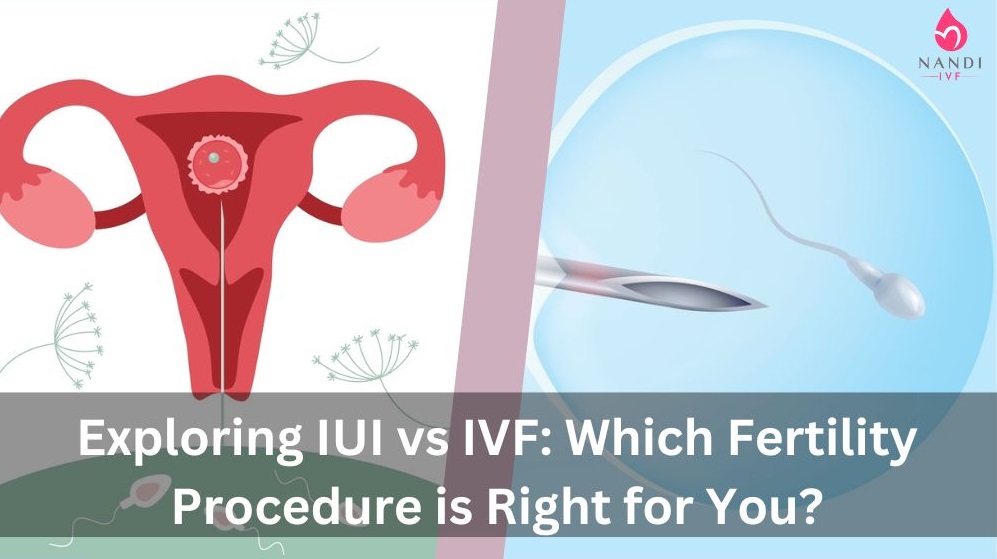IUI, which stands for Intrauterine Insemination, is a medical procedure used for infertility treatment. This procedure is done by inserting the sperm directly into the woman’s uterus. This helps in increasing the chances of getting pregnant. IUI is done when there are issues with cervical mucus problems, unexplained infertility, and the quality of the sperm. There are many myths around the IUI that the IUI procedure is painful. Let us debunk the myths and explore the truth behind every myth.
Intrauterine Insemination Protocol : Understanding IUI
The following steps are done to increase the chances of a successful pregnancy. The positive outcomes of IUI procedure makes parenthood an enjoyable experience for couples. Let us understand the steps it involves and debunk the myth that IUI procedure is painful.
Ovulation Monitoring:
Before starting the process, the woman’s menstrual cycle is closely monitored. They monitor by tracking the hormone levels and ultrasound when ovulation is likely to occur.
Ovulation Induction:
Stimulation of the ovaries is done by providing certain medications like Clomiphene or gonadotropins. Thus increases the number of eggs released during ovulation.
Timing:
This procedure is done when there is an expected time of ovulation. This coincides with ovulation as it ensures that sperm is introduced into the uterus when the eggs are viable.
Sperm Preparation:
Before the IUI procedure, the sperm sample is collected from the partner or the donor. The sample is processed in the lab to concentrate and prepare the healthiest sperm for the insemination procedure.
Insemination:
A thin catheter is inserted into the uterus. The processed sperm sample is directly injected into the uterus.
Monitoring and Support:
After the IUI procedure, some women may be prescribed medications like progesterone to support the uterus lining. The ovulation and pregnancy are monitored through ultrasound and blood tests like HCG, Progesterone, Beta HCG Quantitative, Estradiol Blood Test, and Pregnancy-Associated Plasma Protein-A (PAPP-A) Test.
Pregnancy Test:
A pregnancy test is typically performed after two weeks of the IUI procedure to ensure the pregnancy is successful.
The procedure may vary from person to person. Ensure to consult the fertility specialist to make the right approach.
Read Also: The Importance of Understanding USG Full Form in Medical Practice
Advantages of Intrauterine Insemination
There are many advantages of opting for Intrauterine Insemination. Let us discuss a few of them,
- Less invasive– It is less invasive than IVF.
- Cost-effective– IUI is a more affordable and more accessible option than IVF.
- Minimal Discomfort– It is a painless procedure and does not require anesthesia.
- Natural Timing– It can be scheduled according to the time of the ovulation, so there will be higher chances of fertilization.
- Low risk– lower risk of having multiple babies compared to other fertility treatments.
It may not be suitable for all. Before initiating the process, it is better to consult a fertility specialist. They guide you through the process and help you understand better whether IUI procedure is painful or not.
Read Also: Understanding the Normal Size of the Ovary: How Much Is it Important to Get Pregnant?
Debunking A Myth:IUI procedure is Painful
There are several myths and misconceptions surrounding IUI (Intrauterine Insemination). The first one being that IUI procedure is Painful. Let us debunk this biggest myth and few others too:
The IUI procedure is Painful:
One of the most common myths about IUI is that the IUI procedure is painful. But it is not. Some women may experience mild discomfort and cramps. But it can be tolerated and manageable.
The discomfort or cramping is similar to menstrual cramps. The pain medication is usually unnecessary to undergo this procedure, but the healthcare provider may recommend over-the-counter pain relievers if needed.
The pain perception may vary from individual to individual. Some may have lower pain, and some may be more sensitive to discomfort. If you know you are sensitive to discomfort, you may talk to the healthcare provider before the procedure. You may expect the degree of discomfort you will receive during the procedure and can be well-prepared to manage the discomfort or sensitivities.
IUI Guarantees Pregnancy:
IUI cannot guarantee pregnancy but can only increase the chances of getting pregnant. The success of the pregnancy can vary based on the individual factors.
IUI Can Choose the Gender of the Baby:
As the sperm used for IUI is not sorted by gender, the gender of the baby in IUI is not selected. Rather, it is chosen by the quality of the sperm.
IUI is Only for Severe Infertility:
IUI can be used for mild to moderate male factor infertility when there are no apparent fertility problems and for unexplained infertility.
IUI is the Same as IVF:
Both IUI and IVF are unique in their way. In IVF, the egg is fertilized outside the body, and embryos are transferred into the uterus, whereas in IUI, the sperm is directly placed or injected into the uterus.
IUI is Always Cheaper than IVF:
IUI is generally more affordable than IVF but not always the cheapest option. The cost can vary depending on medications and the number of cycles required.
IUI is Only for Heterosexual Couples:
IUI is used not only for couples who struggle with infertility but also for same-sex couples and single women who want to conceive with donor sperm under certain personal circumstances.
ReadAlso: Test Tube Baby Process, Treatment, and Cost
Multiple IUI Cycles Always Improve Success:
It can vary, and even undergoing multiple cycles does not always guarantee success in pregnancy. The fertility specialist can monitor and tell the couples when to opt for or consider other treatment options.
Complex fertility procedures should be undertaken only in the best clinic for IVF in North Delhi. They ensure that you get guidance only from the best and highly skilled doctors. Nandi IVF is the best clinic for IVF in Pitampura. The facility also tops the list of best IVF centre in Rohini.
Choose The Best: Nandi IVF
IUI is a fertility treatment that provides several advantages for couples who wish to embrace parenthood. These are the myths that make couples hesitate to undergo the treatment. Most importantly, the myth that the IUI procedure is painful is debunked here. Nandi IVF will assist you debunk more such myths and provide accurate and precise information. Make Nandi IVF, the best IVF centre in Paschim Vihar, your partner and let their team of skilled doctors guide you on this journey.
Read Also: Exploring IUI vs IVF: Which Fertility Procedure is Right for You?
Related Video:








